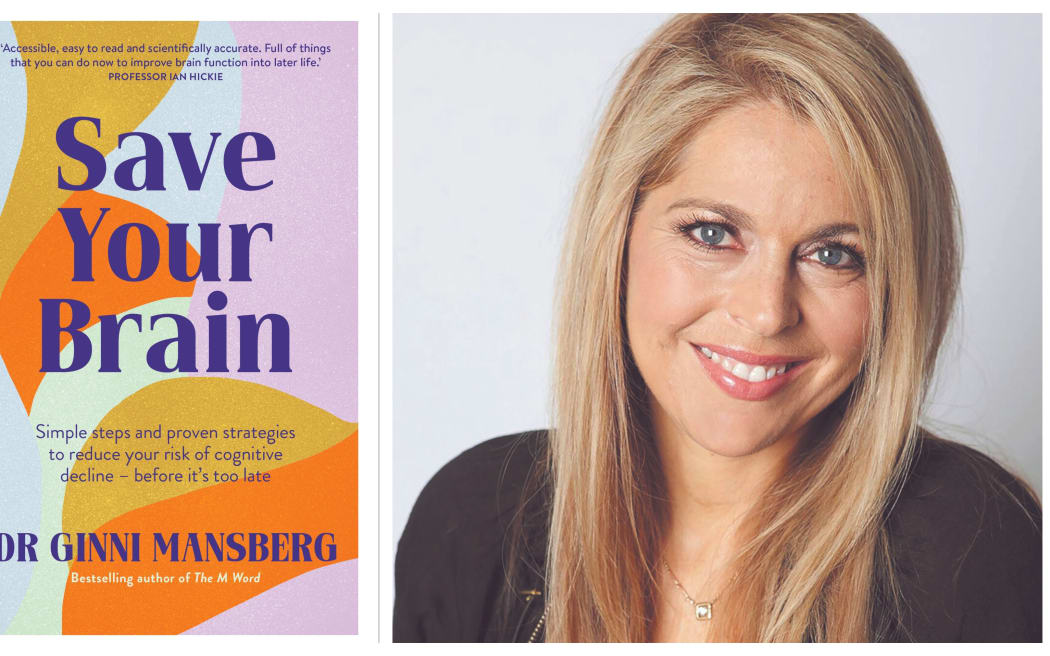Reducing your blood pressure, addressing mental health issues, tackling hearing problems and sorting out sleep troubles in mid-life all help lessen the chance of future cognitive decline, an Australian GP and author says.
Dr Ginni Mansberg is the author of the bestselling book, The M Word, How to Thrive in Menopause, and the co-founder of the Asia Pacific HPV Coalition. She has a particular interest in women's health and says women are overrepresented in dementia statistics.

Dr Ginni Mansberg Photo: Murdoch Books
Her latest book, Save Your Brain includes strategies aimed at staving off, or preventing, cognitive impairment.
Take a close look at your blood pressure
Getting on top of your blood pressure in your 40s and 50s is crucial, Dr Mansberg says.
“It turns out that the numbers that we're telling people are OK, are OK for your heart, and even your kidneys, but definitely not for your brain. That top number is the only one that matters. People really obsess about the bottom number, which is called the diastolic blood pressure.
“In other words, most of us have blood pressure that is too high. And in fact, reducing that [top number] to that 120 maximum can reduce your risk of dementia by up to 30 percent.
“Is that not an insane statistic? And we have that data, because we actually have got studies of like hundreds of thousands of people where we lowered it that much, and that's how much it reduced the risk of having dementia.”
If you’re on medication for high blood pressure, take a higher dose, she says.
“The analogy that I always use is like your plumbing under your house. Now, if the pipes are running at too high tension, it's not like you're going to have a $20,000 plumbing disaster on your hands next week.
“But little cracks appear in the pipes, and you get deposits of different metals in your pipes. And over time they block up. And in 10-15 years’ time, you might have that $20,000 plumbing disaster in your house, it's the same thing with the tension in your pipes that are your arteries, it's exactly the same thing.”
Having high blood pressure means the brain is getting less and less nutrition over time, she says.
“If you’re constantly giving your brain low levels of starvation, that also causes inflammation in the brain and all of those things can actually cause brain damage, but it's a slow burn, which is why you've got to do this in your 40s, 50s and 60s.”
Tackle mental health issues
Mental health is also an important midlife problem to be tackled, she says.
“If you put someone with depression in an MRI machine and have a look at the parts of their brain that control and code for memories, and even personality, they start to shrink. And what we now know is that some of those changes can be permanent, particularly depression in midlife.”
It's critical for your future brain, not just how you feel now, she says.
“I don't just mean going and getting therapy, I actually mean taking an antidepressant if your depression is severe enough, and it's the more severe forms that actually cause more of the brain damage, but there are still too many people who won't admit it, and won't get help.
“That's just my plea to everybody. If you notice somebody who's going through depression, please urge them to get help to actually help rebuild their brain, you can think about antidepressants as brain-building medications.”
Check your hearing
Hearing is a solid building block of good future cognitive health, she says.
While hearing aids are expensive, hard to access and can be ugly, the "insane" link between deafness and dementia means they're worth it.
“They'll save your brain. And I think, move your hair forward, go for a bit of a bigger hairdo and save your brain rather than just being vain and saying 'I don't want hearing aids because they look ugly'.
“There is such a link between having hearing aids and less dementia - it's actually amazing.”
Sort out sleep problems
Getting your sleep sorted, particularly during menopause, is important because poor sleep in midlife is associated with a higher risk of dementia later on, she says.
“We know the damage that hot flushes do to your brain and to your heart... midlife is the highest risk time for depression and suicide for any time in a woman's life.
“And we know that the impact of insomnia, often from you know mild depression plus the hot flushes, we know what that does to your life. Please go and get help. And if your doctor is not listening to you or is not willing to talk about midlife then find someone who will talk to you about it.”

